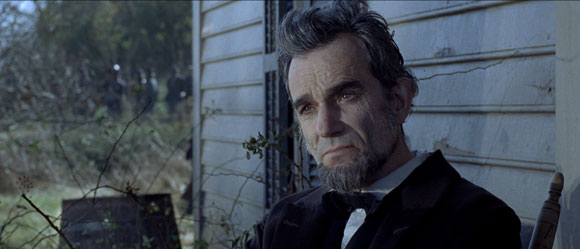
It used to be that Steven Spielberg created iconic films that shaped our imagination. The likes of Jaws, Close Encounters of the Third Kind, Raiders of the Lost Ark, and E.T. assured his legacy. The mid-90s saw a mini-resurgence with Jurassic Park pushing the limits of CGI in its time and then Schindler’s List and Saving Private Ryan became touchstone films in their own right, but I’d argue were also the beginning of Spielberg’s disconnect between himself and modern audiences.
Beginning at that time, his movies may have tackled harder subjects but they also carried with them a big budget sheen that reduced the gritty quality current audiences typically associate with portrayals of realism. Also, while A.I. was the most obvious example, his films began to become infected with multiple-ending syndrome; where rather than choosing the first valid choice to fade to black, Spielberg kept going a few times for no apparent reason other than perceived indecision.
And while the Hollywood establishment continued to shower him with praise for tackling weighty issues, few stopped to question if he was doing more than skim the surface. His films look pretty, boast A-list actors, and generally carry a John Williams score so they must be good, right? Well, the latest of his attempts to bring history to the big screen is Lincoln, which is already earning rave reviews from all the expected places … and will be missing the mark from this reviewer if you couldn’t already tell where this was headed.
Now, the production design is excellent and the cinematography is on par with your typical Spielberg film. Also, I will say that the make-up department did a bang-on job of making Daniel Day-Lewis look like the Abraham Lincoln everyone pictures in their head and it’s no surprise that this revered actor delivers a great performance. However, what will be keeping me from proclaiming it the best performance of the year is a script and direction that fall into the Oscar-bait category you’ll be hearing me whine about all awards season.
Starting with Spielberg’s direction and casting, it’s often said that Mary Todd Lincoln suffered from severe depression and may have been bipolar. Even with that information in hand, Sally Field’s performance is so over the top she should be a shoo-in for the Razzie (but she won’t be because this is a Spielberg film). Practically every second she’s on-screen, I expected her to ask Lincoln if his magic shoes had straightened out his spine and as the grating performance wore on and on, my patience become thinner and thinner and if it weren’t for needing to write this review, I would not have stuck around to the end.
Many of Spielberg’s other directing choices didn’t help things either, and in conjunction with the script, it felt like a twenty-minute history anecdote stretched into two and a half anticlimactic hours. This is sort of a bio piece but the bulk of the film is centered on Lincoln’s struggle to pass the 13th Amendment abolishing slavery (I don’t consider history a spoiler). The film reduces the Civil War into a simplistic battle of the North versus the South as a result of an ideological divide about slavery; any junior high school history teacher will tell you there were other key factors.
Along the way we are “treated” to a number of moments where Lincoln hypnotizes a room with some folksy story that bears the stench of carefully crafted speechwriting; only he’s not at some public function, he’s in a room with a few other people, and Spielberg is constantly hammering his point to the audience about Lincoln’s perfect morality. The manner in which he’s depicted is not unlike idolatry and while few may argue he wasn’t in the right more often than not, watching such one-sidedness in the examination of a historical figure simply isn’t interesting, let alone is it realistic.
Following the unsurprising vote on the 13th Amendment, which is where the film is best left calling it quits due to how the movie is structured, the film then goes on to suffer from the aforementioned multiple ending syndrome and just like Titanic, I think you all know where it eventually leads. If not, you should finish high school.
So while there will be plenty of people extolling the virtues of a look at such a celebrated President and they may be blinded by Daniel Day-Lewis’ transformation, the filmmaking Spielberg is exhibiting is so free of substance that it feels crafted under the supervision of screening audiences. Lincoln simplifies the material, makes Mary Todd the most irritating character on-screen in 2012, and one can only hope this isn’t what high school students are forced to watch in the future because I’d prefer they get a more well-rounded education.
GRADE: C-
Lincoln is rated PG-13 for an intense scene of war violence, some images of carnage and brief strong language.






